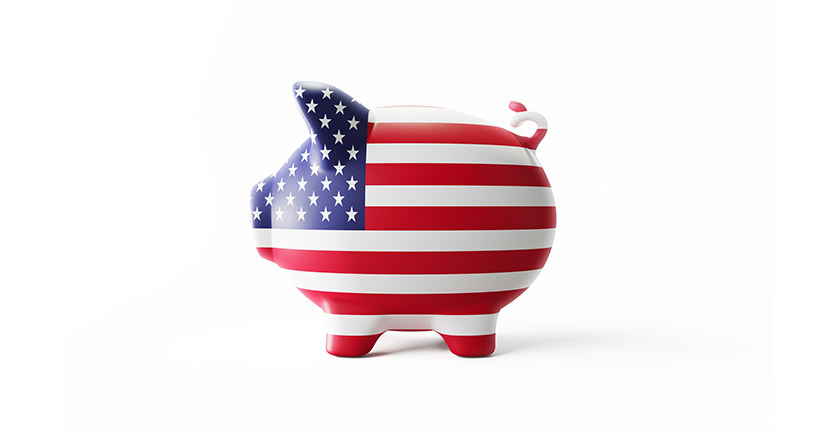Congress Passes $2 Trillion Bipartisan Relief Bill
This article contains breaking news and events related to the current state of politics and the economy. While we try our best to keep our articles as up-to-date as possible, the ongoing effects of COVID-19 are happening in real time and information is subject to change.
This week, the U.S. Congress passed a nearly $2 trillion economic rescue package. The largest in American history, the package will help inject money into the economy by supporting families, workers, and businesses, and prevent our economy from taking a further tailspin.
This legislation is a big deal and there’s a lot in it. As our country faces the COVID-19 pandemic and many of us are quarantined in our homes, we want to help you understand how actions in Congress could impact your personal finances. Right now, what is happening in Washington, is very relevant to you and your money.
Some additional big news is that, among many other things, the legislation will enable employers to contribute up to $5,250, tax-free, to employees’ student loans for one year.
All of that money will be able to help you pay down your student loan debt. We have been advocating for Congress to pass this provision for some time and are eager to see it become law.
Here are some important pieces that could impact you.
For consumers:
• Direct, one-time cash payments of up to $1,200 for individuals, $2,400 per couple, and $500 per child (dependent on income levels).
• Extension of unemployment insurance to four months for those who lose their jobs during the crisis.
◦ The support also applies to those who are self-employed or gig economy workers who will get normal state unemployment benefits, plus $600 per week for four months.
• Tax relief for one year to encourage employers to implement student loan repayment programs for employees.
• Rent, mortgage, and utility costs become eligible for loan forgiveness from the U.S. Small Business Administration.
For businesses:
• $425 billion fund controlled by the Federal Reserve to support distressed companies, plus $75 billion for industry-specific loans — such as airlines and hotels.
• $454 billion to boost Federal Reserve lending programs to businesses, states, and municipalities
• $350 billion in loan forgiveness grants for small businesses and nonprofits that pledge to avoid layoffs, to help them make payroll, mortgages, rent, and other expenses.
• Deferral of payroll taxes for employers and the ability to pay them back throughout the next year.
• $10 billion for small business emergency grants of up to $10,000 to provide relief for small business operating costs.
• $17 billion to cover six months of payments for small businesses with existing loans from the U.S. Small Business Administration.
• Retailers, restaurateurs, and hotels will be able to immediately deduct from their taxes expenses on property improvements.
For the economy:
• $150 billion fund for state and local governments.
• $130 billion fund to support hospitals that are under pressure during the crisis.
• Ban on stock buybacks for companies receiving federal support during the course of the assistance plus an extra year.
• Restrictions on increases to executive compensation for companies that use federal funds in the bill.
• Transparency and oversight of how public funds are used including the creation of an oversight panel that will be in charge of protecting taxpayer money and “real-time” reporting to the public on transactions made with taxpayer funds.
What’s next?
This package is the third—and largest—piece of legislation Congress passed to help address the massive health care and economic challenges from COVID-19.
But it likely won’t be the last as it’s very possible, if not expected, that Congress will need to come up with another rescue or stimulus package in the next month or so.
SOCO20012



